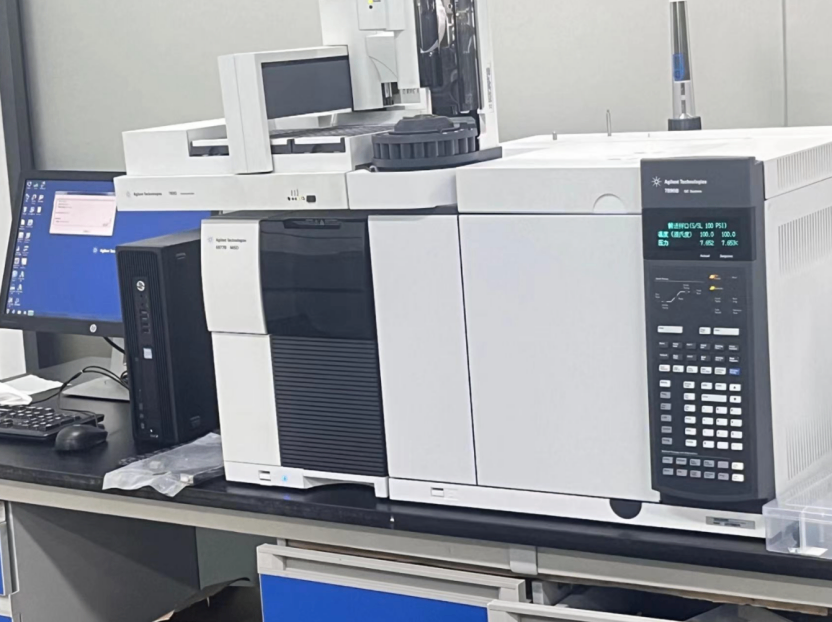2026-01-29
Tech&Science
2025-04-24
1311 Read.
In a modest but sleek office nestled in Guangzhou, Luan Wei speaks with a quiet authority that belies the disruptive nature of his work. Over the past two decades, he has not only witnessed but actively shaped the transformation of China’s scientific instrumentation sector—from a technology-importing nation to a solution-generating powerhouse. As the General Manager of Thermo Fisher Scientific (China) Co., Ltd.’s Guangzhou branch, Luan stands at the frontier where science, technology, and industrial sustainability converge.

“I never saw sales as merely transactional,” he reflects. “I see it as translational—translating real-world scientific needs into integrated, accessible solutions.” It is this philosophy that has propelled his career across two of the world’s most influential scientific equipment companies: Agilent Technologies and Thermo Fisher.
Luan Wei joined Thermo Fisher Scientific in 2008 and has since built a solid foundation in the field of high-end scientific instrumentation, particularly in chromatography and mass spectrometry. In 2018, he assumed the role of Senior Regional Marketing Manager for South China, where he was responsible for formulating market strategies and driving product promotion. At the time, although Guangzhou boasted a rich concentration of research institutions and diverse scientific organizations, the sales and service models for advanced instruments remained traditional and fragmented. Leveraging his master’s degree in analytical chemistry and over a decade of frontline technical and commercial experience at Agilent Technologies, Luan initiated a comprehensive restructuring of the regional market strategy. His approach successfully bridged the gap between local user needs and Thermo Fisher’s global product portfolio, resulting in significantly enhanced market responsiveness and client engagement.
He introduced a dual-track strategy. One arm focused on advancing sales of high-end analytical systems such as liquid chromatography-mass spectrometry (LC-MS) and cryogenic electron microscopy (Cryo-EM)—fields where technical literacy among buyers was rising but supplier engagement remained passive. The other emphasized building contextual trust: organizing webinars, technical symposia, and targeted collaborations that would embed Thermo Fisher as a scientific partner, not merely a supplier.
This approach yielded measurable results. By 2023, the Guangzhou branch under Luan’s leadership recorded consecutive double-digit annual revenue growth. In particular, his strategy to promote Cryo-EM technologies within local research consortia led to Thermo Fisher securing multimillion-yuan contracts with top-tier institutions such as Sun Yat-sen University and Jinan University. He established a support framework for post-installation training and application development—unprecedented for regional offices—which earned the branch a coveted seat in the corporation’s global “President’s Club.”
Luan’s vision extended beyond commercial metrics. He recognized that much of China's environmental regulation was hampered by a lack of real-time, high-resolution analytical systems, especially in water quality monitoring. Drawing on his chemistry background, he worked with internal R&D teams and external partners to apply mass spectrometry technologies in novel ways. This culminated in a solution tailored for industrial wastewater toxicity analysis, using LC-MS/MS coupled with a proprietary database and AI-driven predictive toxicology algorithms. The system now helps municipalities and factories pre-screen hazardous effluents in under 15 minutes—a breakthrough that both sped up compliance and reduced human error.
When asked about his innovations, Luan shrugs off individual credit. “It was a team effort,” he says. But internal records and third-party assessments tell a different story. According to feedback from implementation partners in Shenzhen and Guangzhou, Luan’s initiatives improved detection accuracy rates by over 30% and cut processing costs by up to 25%.
In parallel, Luan cultivated cross-disciplinary applications for scientific instruments—bridging metabolomics, genomics, and water treatment in a way few had considered commercially viable. One of his pioneering deployments integrated cold-electron microscopy with membrane diagnostics, creating an image database that could detect and classify membrane fouling with over 90% accuracy. The result: optimized cleaning schedules, prolonged equipment lifespans, and a reduction in water processing waste.
Colleagues often describe Luan as a “scientific polyglot”—able to speak the languages of researchers, regulators, engineers, and business strategists alike. But perhaps most notably, he has brought empathy into an industry dominated by precision. Under his guidance, Thermo Fisher’s Guangzhou office began collaborating with regional universities not only to train lab technicians but also to support underrepresented groups in STEM. His contribution to the “Women in Science” initiative—coordinated with the China Women’s Development Foundation—garnered media praise and helped over 600 female students access career mentorship and lab exposure.
Luan doesn’t boast about these numbers. Instead, he points to the changing expectations of the scientific sector itself. “We're no longer selling equipment. We’re designing systems for discovery, compliance, and sustainability,” he notes. His leadership is thus not just technical, but philosophical—helping reposition the role of scientific services in modern China.
Today, Thermo Fisher’s Guangzhou branch is a benchmark for regional scientific equipment strategy across Asia. It has moved from passive distribution to active innovation, in no small part thanks to Luan’s strategic foresight. He now advises on national procurement models, mentors emerging technical managers, and helps integrate AI and automation into next-generation product roadmaps.
As we end our conversation, I ask Luan how he views the future of the industry. “It’s not just about speed or resolution anymore,” he answers, pausing briefly. “It’s about relevance—whether our tools help the world become cleaner, safer, and more capable of understanding itself. That’s the only legacy that matters.”
In Luan Wei, that legacy is not aspirational—it is already being built, one calibrated system at a time.